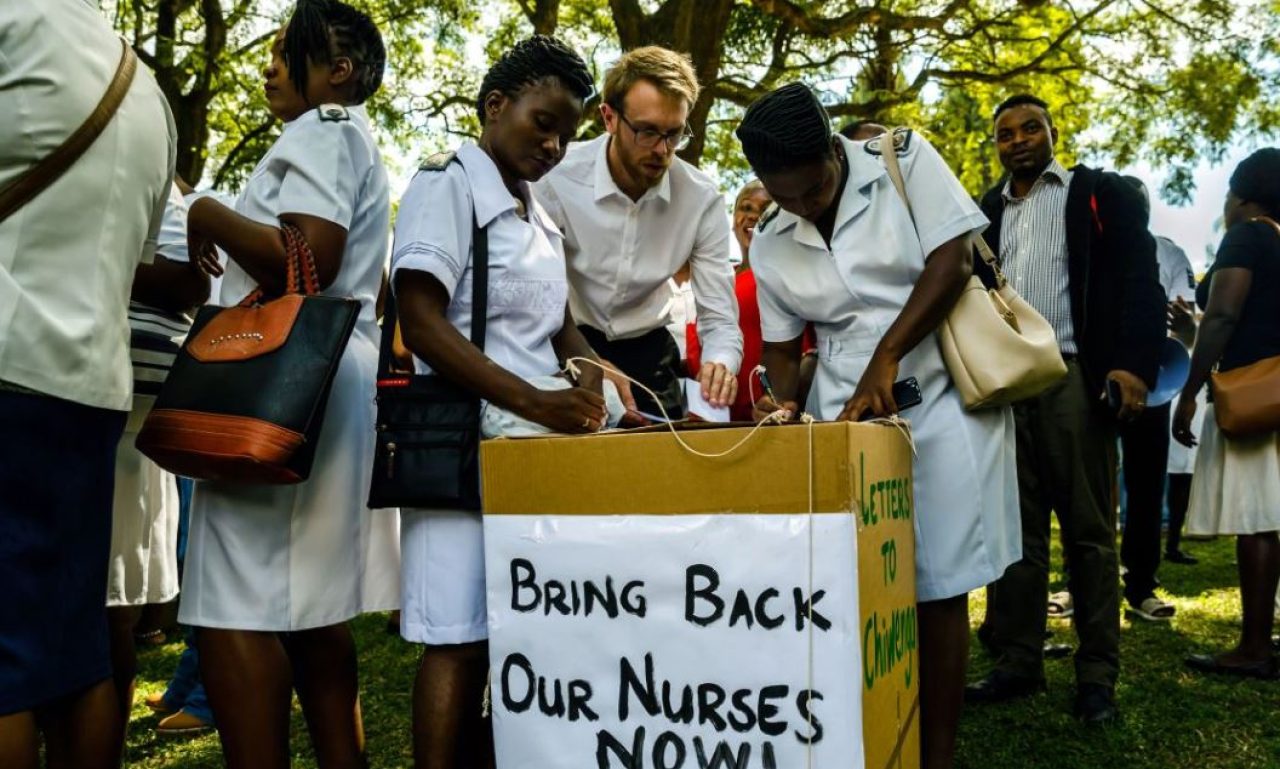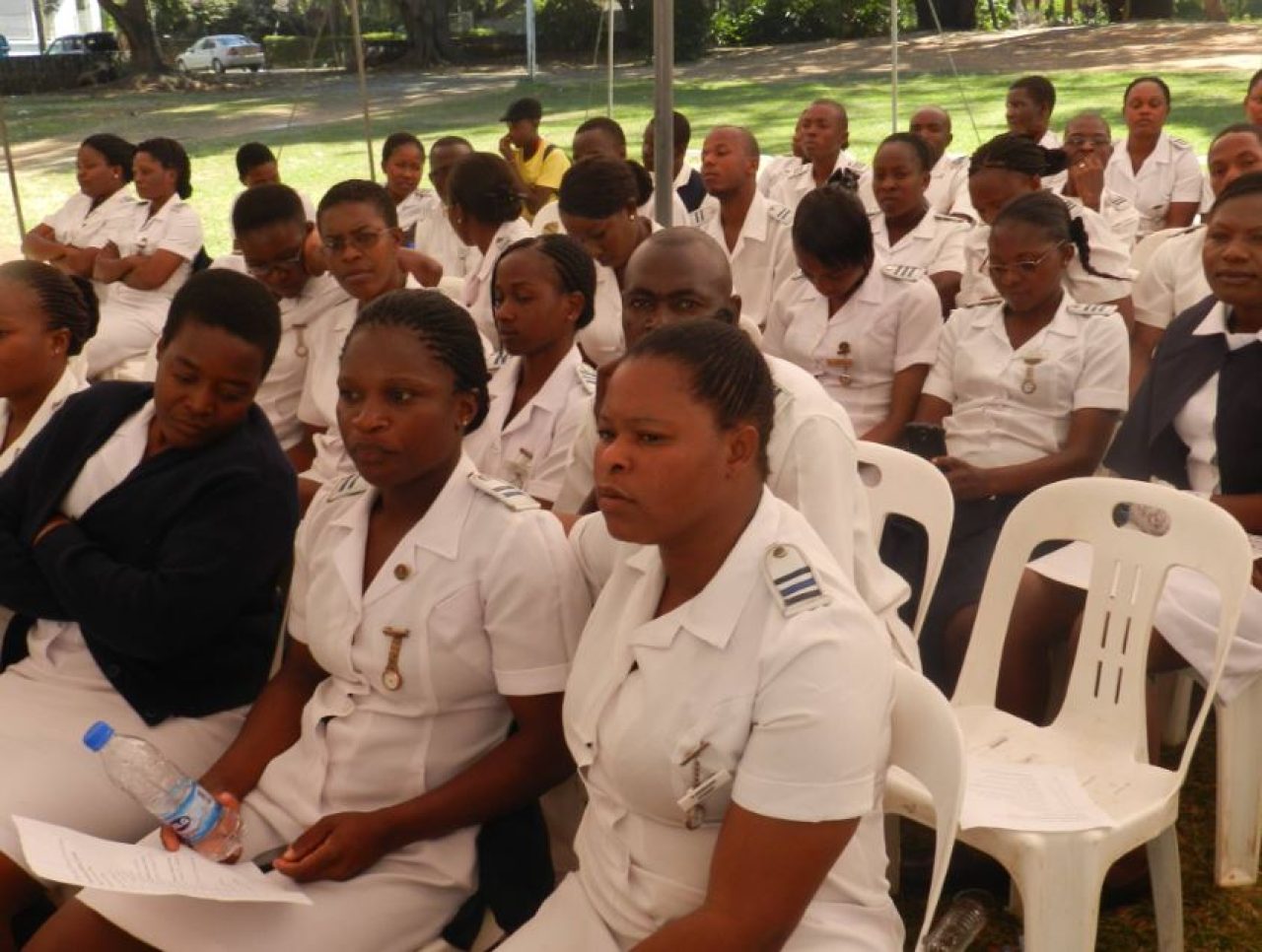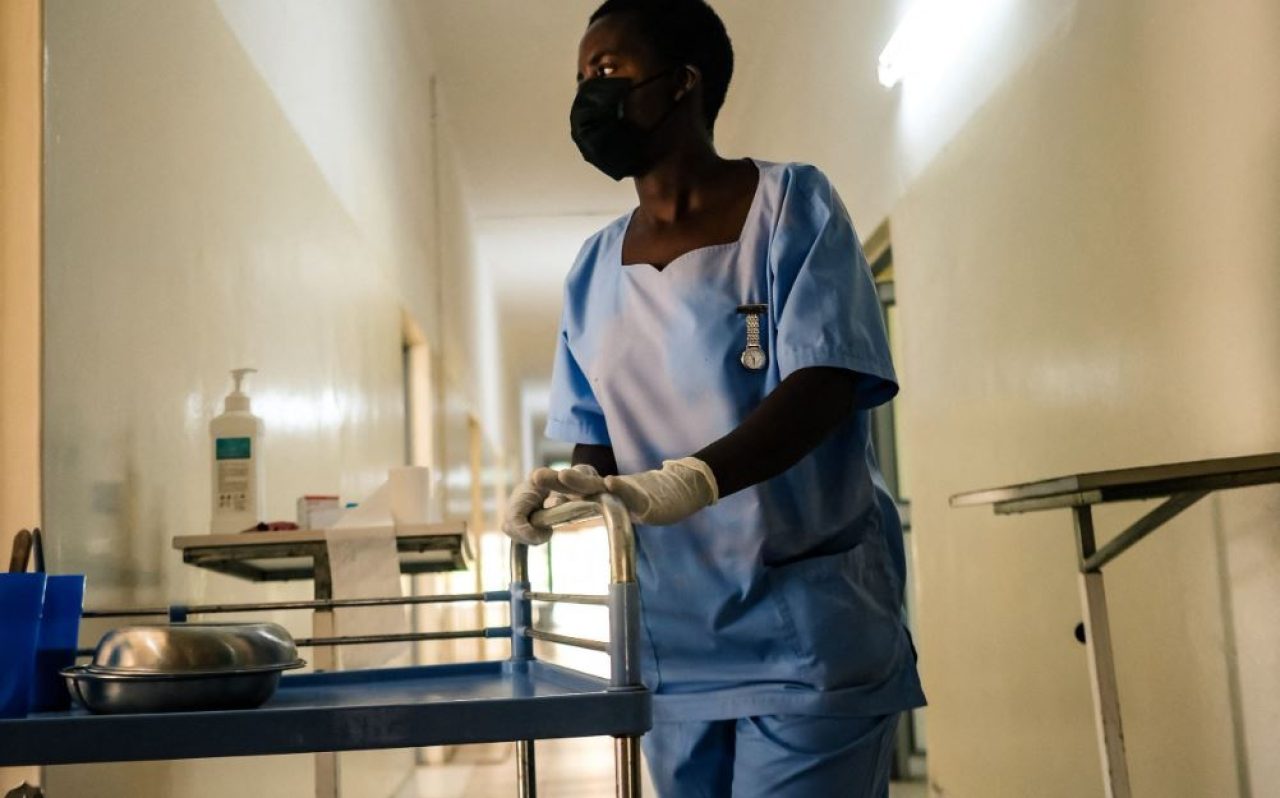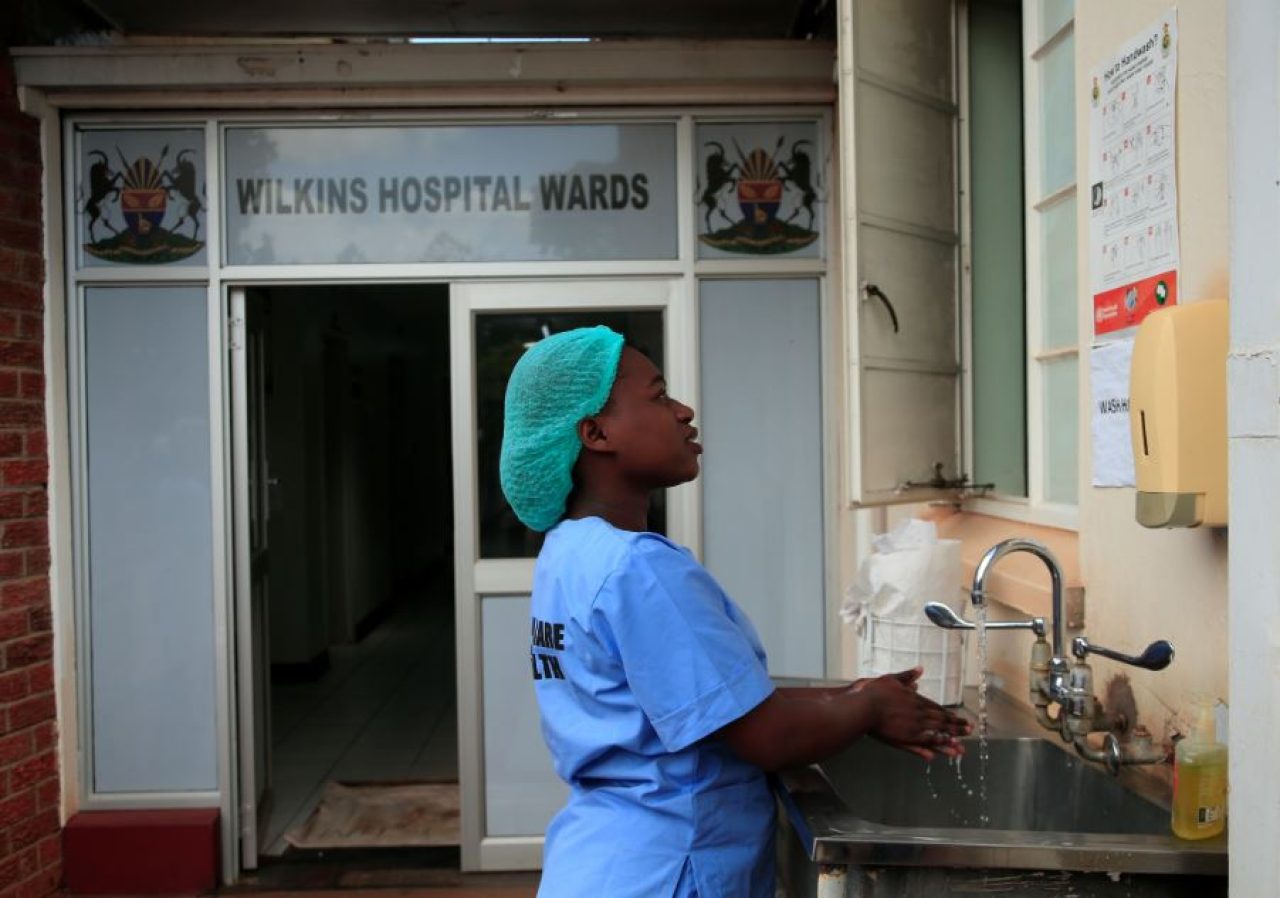Jane, a Zimbabwean nurse who was struggling to make ends meet on her modest pay, made the decision to leave her home country and seek employment in Britain. However, a year later, she has not yet packed her bags.

Jane isn’t by herself. In an effort to stop the exodus of skilled medical professionals, Zimbabwean nurses who are keen to leave their country of extreme poverty claim that their government is preventing them from seeking chances abroad.
“The government is holding me to ransom now,” said Jane, 35, who only used her first name for fear of reprisals.
“I’m really worried I might not be able to leave,” added the single mother-of-three who can no longer afford to eat lunch as sky-high inflation sabotages her finances.

According to nurses, the government is impeding their attempts to migrate by refusing to give them a vital document attesting to their professional position, which is required in order for them to accept employment abroad.
The Nurses Council of Zimbabwe, the body that regulates the profession, used to issue “verification letters,” which the Health Ministry took over early last year. Previously, the Council would process the letters in a matter of days.
Thousands of nurses in the nation in southern Africa are reportedly impacted, according to unions there.
The president of the Zimbabwe Urban and Rural Council Nurses Workers Union, Simbarashe Tafirenyika, claimed that certain ministry employees were taking advantage of the situation by requesting large bribes in order to expedite paperwork.

Ministers have regularly expressed worry about the migration of doctors and nurses abroad, but the administration has not responded to calls for comment. It has also raised the document application price to $300.
Vice President Constantino Chiwenga claims it is unfair that Zimbabwe spends enormous sums of money training health workers only for them to be stolen by wealthier nations. Chiwenga has revealed intentions to make it illegal for foreigners to hire medical personnel.
However, given that many of them make less than $100 a month, nurses argue that it is unjust for the government to forbid them from leaving.

Official records show that almost 4,000 health workers, including over 2,600 nurses, departed Zimbabwe in 2021 and 2022.
Conventional locations include Britain, Canada, and Australia, where a nurse’s beginning pay is approximately £28,400 ($34,490).
Zimbabwe was included on the World Health Organization’s “red list” of nations with an urgent need for more health workers this year.
According to the most recent World Bank data, Zimbabwe had 2.1 nurses and midwives per 1,000 inhabitants in 2020—less than a fourth of the amount in Britain.

The United Kingdom, which mostly depends on foreign-trained nurses to address its workforce scarcity, has ceased its active recruitment of Zimbabwean nurses. This does not, however, stop nurses from immediately applying for jobs.
The Nursing and Midwifery Council (NMC) of the United Kingdom has registered over 4,330 nurses who received their training in Zimbabwe.
Although some verification letters were still arriving, an NMC representative acknowledged that the company was aware of the problem with them in Zimbabwe.

According to union president Tafirenyika, nurses are leaving the profession to work in non-nursing fields without proper documentation.
In order to obtain a globally accepted “nurse aid” certificate—a path to lower-skilled positions in health and social care—he claimed that some people were even enrolling in quick first aid courses.
Ten-year veteran Jane works in a hospital in Harare, the country’s capital. She also sells clothing and fragrances online because her $200 monthly paycheck is insufficient to pay her expenses.
Other nurses she knows juggle hospital shifts with selling clothes and groceries illegally on the streets where they are often chased by police.

“They endure all this to put food on the table,” Jane said. “Some nurses spend the whole day without eating anything at work.”
The fact that nurses’ salaries are paid in both US and Zimbabwean currency presents a serious issue.
The majority of stores and companies bill in US dollars, so nurses have to convert the percentage paid in local currency—which has lost value this year—before receiving payment.
Jane claimed that 5% of her pay disappeared into bank fees and that 25% went towards her commute to and from her suburban Harare residence.
Last year, thousands of medical professionals, including nurses and doctors, went on strike to demand a significant pay increase and to have their earnings paid in US dollars alone.
Zimbabwe forbade healthcare workers from going on strike for longer than three days in January, with jail sentences of up to six months.
The unsatisfactory state of the healthcare system and the limited opportunities for career advancement were also expressed by nurses.

Not only do hospitals often lack X-ray machines and ventilators, but they might also run low on rubber gloves and medications.
According to nurses, patients frequently had to purchase their own medications.
“The situation is really pitiful,” said Jane. “There’s no equipment for some procedures leading to a lot of cancellations.
“Women are delivering babies without linen and have to sleep on the floor after giving birth. There is no lignocaine (local anaesthetic) if they need stitches so they have to buy it themselves.”

Tanaka, 28, who works at another Harare hospital, is also demoralised.
“It’s tough to ask patients to buy their own drugs – imagine, even paracetamol!” she said.
“We work without PPE (protective clothing). I fear for my health. Enough is enough.”
Tanaka had hoped to relocate to Britain in the summer after receiving a job offer last year but is still awaiting her verification letter.
“I was afraid when they said they want to bring in a law to bar us from going. That is scary,” said Tanaka, who only gave her first name.
Moving is not inexpensive. She has already paid $1,200 for other expenditures and to take the professional exam needed to work in Britain.
In addition, she has to pay for a TB test and an English language test, but she has put these off because she is unsure if the government would approve her papers.
Tanaka, who has a daughter who is five years old, acknowledges that living in Britain is costly—average monthly rent in some areas of London exceeds £2,000—but she claims she cannot afford to remain in Zimbabwe.
“I take home a paltry $200. It’s not enough to feed my family or even buy clothes for my kid. I have no choice,” she said.





